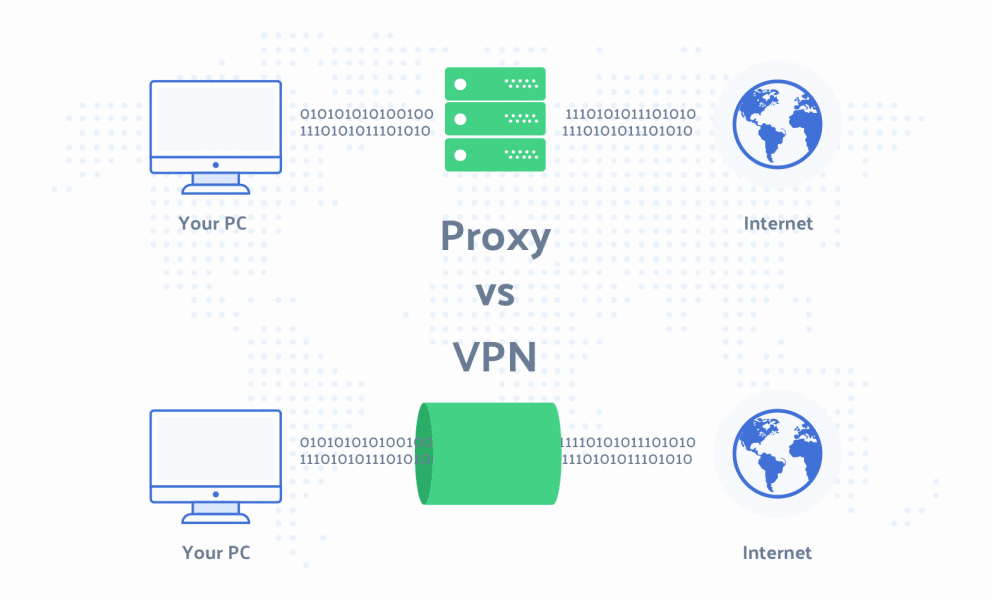
Amongst the plethora of methods available for unblocking blocked web contents, proxy and VPN are the most used ones. VPN vs. Proxy has been a debate that dates back to a time immemorial. This often creates a situation where people are confused while choosing between the two services. Both these services have their pros and cons. In this article, we shall be discussing these two services and leave it up to you to decide the better choice amongst the two.
But first, let us know what they really are.
What is a Proxy?
A proxy is a bridge between the user and the internet. Your requests, routed through this ‘bridge’, appear to be coming from the bridge itself and not from you. Simply speaking, any request you make, while on a proxy server, makes the website concerned think that the request is being made from that proxy server and not from you. Proxies usually communicate using HTTP or SOCKS protocol.
What is a VPN?
VPN on the other hand, provides the same service, but also takes care of your anonymity and security. VPNs too mask your IP address with another but encrypt all the data passing through it. This enables VPN to take care your anonymity online. Apart from these, VPNs are also used by corporations to share files anonymously on their network from anywhere. A VPN uses PPTP, L2TP, SSTP, or OpenVPN protocol to connect to the internet.
Now, that we understand the difference between a VPN and a Proxy, we proceed to the next section, where we will make a comparison between the two services and find the one that suits your needs. Different parameters upon which comparison is to be made have been given below:
- VPNs provide encryption to all the data passing through it, which is not the case with a proxy service. Encryption provides security to the data and hence privacy of the users is maintained. The data is so well encrypted that even your ISP cannot monitor your online activities.
- The debate of Proxy vs. VPN takes a sharp turn in this first parameter itself. Data via a proxy tunnel may not be encrypted at all and is vulnerable to interception by anyone.
- VPNs provide bank-like security to all your communications. Its high-level 256-bit encryption ensures that you have no security threats.
- Proxies provide two kinds of connection: SSL and non-SSL connection. An SSL connection provides encryption, but a non-SSL connection doesn’t and hence the vulnerability to cyber threats increase.
- VPNs can opt for solutions like SmartDNS to increase their speed.
- But such solutions aren’t available in case of a proxy. As a result, proxies provide comparatively slow speeds.
- VPNs can be accessed over a wide variety of operating systems.
- But proxies are available only on some browsers.
- VPNs have an uptime of 99.1%, meaning that it remains stable for 99.1 percent of the time and provides you with maximum up-time.
- Whereas, proxies experience frequent downtimes and are prone to crashing.
- VPNs are capable of unblocking all kinds of restricted contents on the internet. VPNs allow you to access any content from any part of the world.
- Proxies can only help you with certain geo-restricted websites. A strong firewall or security system can prevent proxies from circumventing the block.
Summing-up
VPN vs. Proxy debate will go on for eternity. However, you need to pick and choose the best from the available resources. We have enlisted the pros and cons of both proxies and VPNs above. From the arguments presented above, VPN seems to take away the cake. Proxies still find its relevance in bypassing not-so-strong security measures. Readers can still choose proxies if the censorship by their government/ISP is not very strong.










